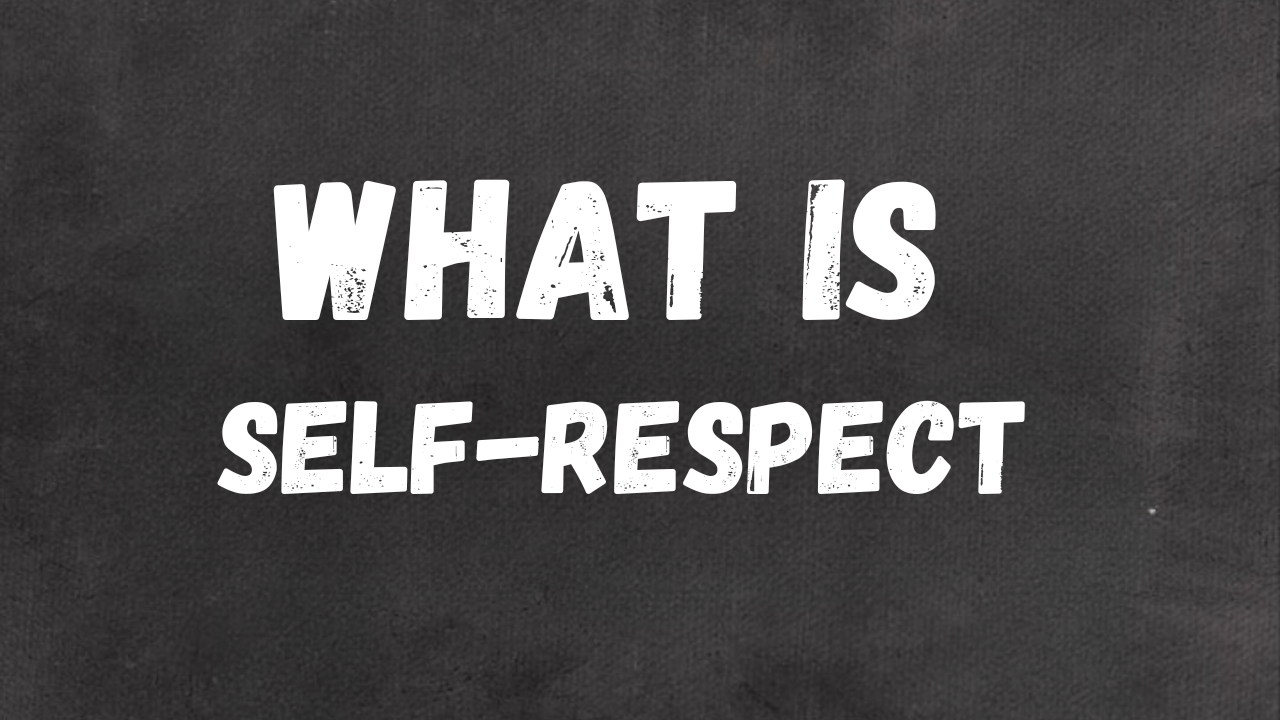Self-respect means understanding how special and valuable you are. It’s about being kind and caring to yourself and knowing that you deserve to be treated well. When you respect yourself, you’re confident and set healthy boundaries with others. It doesn’t mean thinking you’re better than anyone else; it’s about knowing your worth. Self-respect helps you make good choices and feel good about yourself. Always treat yourself with kindness and dignity, and others will follow your lead. This way, you can build a strong, positive sense of self-worth.
Self-respect shapes how you interact with others and allow others to treat you. It influences your decisions and helps you stand firm when faced with difficult choices. Without self-respect, it’s easy to feel lost, unworthy, or undervalued.
Why Is Self-Respect Important?
Self-respect is the foundation of a healthy and fulfilling life. It helps you build better relationships because when you respect yourself, you naturally attract people who respect you too. It gives you the strength to say no to things that don’t align with your values or well-being.
Moreover, self-respect boosts your self-esteem. It gives you the courage to stand up for yourself and believe in your abilities. When challenges arise, having self-respect helps you face them with confidence rather than doubt.
Maintaining Self-Respect in Difficult Times:
Life isn’t always easy, and there are moments when maintaining self-respect becomes challenging. These are the times when you may feel judged, hurt, or even like giving up. However, holding on to self-respect during tough times is essential for staying strong and overcoming difficulties.
Accept Yourself:
The first step to maintaining self-respect is to accept yourself, even when things go wrong. Nobody is perfect, and everyone makes mistakes. Instead of being hard on yourself, remind yourself that you are human. Treat yourself with compassion, just like you would a friend who is struggling.
Accepting yourself also means embracing your flaws and understanding that they don’t define your worth. Focus on your strengths and the things that make you unique. This mindset helps you stay grounded and confident in your values.
Set Boundaries:
In tough times, people might try to take advantage of you, criticize you, or cross your limits. Maintaining self-respect means setting clear boundaries and not allowing others to mistreat you.
It’s okay to say no to things that don’t feel right for you. If someone’s behavior is hurtful or disrespectful, communicate your feelings calmly but firmly. By standing up for yourself, you show others that your self-respect is non-negotiable.
Avoid Negative Self-Talk:
When life gets difficult, it’s common to experience self-doubt or negative thoughts. However, criticizing yourself will only harm your self-respect. Pay attention to your inner voice and challenge any negative self-talk.
Instead of saying, “I’m not good enough,” remind yourself, “I’m doing my best, and that’s enough.” Replacing negative thoughts with positive affirmations can help you stay confident and focused during tough times.
Surround Yourself with Supportive People:
The people you spend time with play a big role in how you feel about yourself. In challenging times, it’s important to be around people who uplift and support you.
Avoid those who make you feel small or unworthy. Instead, spend time with friends, family, or mentors who respect and encourage you. Their positive influence can help you stay strong and maintain your self-respect.
Stay True to Your Values:
Difficult times often test your morals and beliefs. Maintaining self-respect means staying true to what you stand for, even when it’s tempting to compromise.
For example, if you value honesty, don’t let tough circumstances pressure you into lying or cheating. Sticking to your principles shows strength and integrity, which are essential aspects of self-respect.
Conclusion:
Self-respect is a vital part of living a healthy and happy life. It’s about knowing your worth and standing up for yourself, even when life is hard. In difficult times, self-respect acts as your anchor, helping you stay true to who you are.
By accepting yourself, setting boundaries, avoiding negative self-talk, surrounding yourself with supportive people, and staying true to your values, you can maintain self-respect no matter what challenges you face.
Remember, respecting yourself is not just an act of self-love but a way to show the world how you deserve to be treated. Hold on to your self-respect, and you’ll find the strength to face any difficulty with confidence and dignity.
